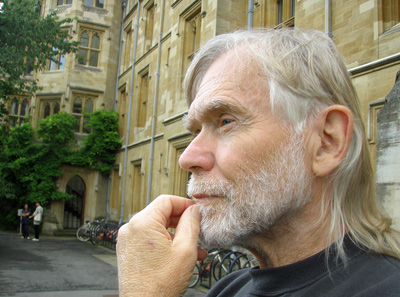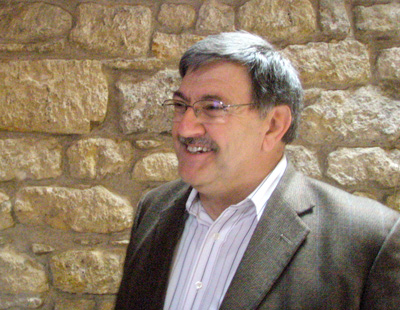February 27 - March 1, 2009
Berkeley DoubleTree Marina, Berkeley, California
Critical thinking concepts and tools are the essential core of all well-conceived instruction. They define the ultimate goals of education. Taking ownership of these goals is the crucial first step in educational reform. The second step consists in contextualizing the goals. This entails creating strategies for bringing critical thinking into the teaching of every subject. Thus follows the design of the Spring 2009 workshops.
The first workshop day will focus on taking ownership of the core concepts and tools that define critical thinking as an intellectual and personal set of understandings (with an advanced foundations session for returning participants). Days two and three will target strategies for bringing these core concepts into the logic of subjects, disciplines and domains of human thought.
All participants will attend a foundational workshop on the first day, followed by the workshop strand of their choice on the second and third days.
Day One (choose one):
Days Two and Three (choose one):
Day One: Taking Initial Ownership of the Foundations of Critical Thinking Spring 2009 Workshop Brochure (printable)
| Files available for download » |
Introduction to Critical Thinking
The first workshop day will focus on the fundamentals of critical thinking. This session will lay the foundation for all other workshop sessions. It will introduce you to the essential conceptual sets in critical thinking – namely, how to analyze thinking, how to assess it, and how to develop and foster intellectual virtues or dispositions.
One conceptual set that we will focus on is the elements of reasoning, or parts of thinking. The elements or parts of reasoning are those essential dimensions of reasoning that are present whenever and wherever reasoning occurs —independent of whether we are reasoning well or poorly. Working together, these elements shape reasoning and provide a general logic to the use of thought. They are presupposed in every subject, discipline, and domain of human thought.
A second conceptual set we will focus on is universal intellectual standards. One of the fundamentals of critical thinking is the ability to assess reasoning. To be skilled at assessment requires that we consistently take apart thinking and examine the parts with respect to standards of quality. We do this using criteria based on clarity, accuracy, precision, relevance, depth, breadth, logicalness, and significance. Critical thinkers recognize that, whenever they are reasoning, they reason to some purpose (element of reasoning). Implicit goals are built into their thought processes. But their reasoning is improved when they are clear (intellectual standard) about that purpose or goal. Similarly, to reason well, they need to know that, consciously or unconsciously, they are using relevant (intellectual standard) information (element of reasoning) in their in thinking. Furthermore, their reasoning improves if and when they make sure that the information they are using is accurate (intellectual standard).
A third conceptual set in critical thinking is intellectual virtues or traits. Critical thinking does not entail merely intellectual skills. It is a way of orienting oneself in the world. It is a way of approaching problems that differs significantly from that which is typical in human life. People may have critical thinking skills and abilities, and yet still be unable to enter viewpoints with which they disagree. They may have critical thinking abilities, and yet still be unable to analyze the beliefs that guide their behavior. They may have critical thinking abilities, and yet be unable to distinguish between what they know and what they don’t know, to persevere through difficult problems and issues, to think fairmindedly, to stand alone against the crowd. Thus, in developing as a thinker, and fostering critical thinking abilities in others, it is important to develop intellectual virtues – the virtues of fairmindedness, intellectual humility, intellectual perseverance, intellectual courage, intellectual empathy, intellectual autonomy, intellectual integrity, and confidence in reason. A process will be modeled throughout the day that will exemplify the essential ingredients of teaching for ownership: modeling thinking, requiring thinking, assessing thinking.
Each participant, working under the direction of a facilitator, will engage in repeating cycles of reciprocal teaching and assessment focused on the foundational concepts and principles of critical thinking. These sessions will be facilitated by Dr. Linda Elder, Dr. Gerald Nosich or Dr. Enoch Hale.
There will be a separate advanced session for returning registrants.
Advanced Ownership Session: Foundations of Critical Thinking – Going Deeper
One of the best ways to learn any content is to write about that content in order to work it into your thinking. The “Advanced Ownership” Session will focus participants on deepening their understanding of critical thinking through reading about and writing about the foundations of critical thinking. Mini-lectures will be interspersed. The session is advanced in that it assumes that participants have (previous to the spring workshops) developed the ability to orally state, explain, and exemplify basic critical thinking concepts (namely the elements of reasoning, intellectual standards and intellectual virtues). For example, one of the activities in this session might be to explain in writing what an inference is (showing basic understanding of it) and then get feedback on the writing from other advanced workshop participants. This session will be led by Dr. Richard Paul.
Common Thread for Day One
The common denominator for both groups (during the first day of the workshops) is engagement in a process that can be used in a classroom (subsequently) to aid students in taking ownership of basic concepts in academic disciplines. The participants will experience the power of reciprocal teaching or writing as forms of deep learning. In reciprocal teaching we teach the students concepts in such a way that they must teach what they have learned from us to other members of the class. They take turns teaching each other until they are able to express what they are learning clearly and accurately.
Days Two and Three: Choose Your Workshop
Participants will choose one of the following workshop strands for days two and three. These strands each represent a 2-day workshop following the foundations workshop on the first day. They are intended to be taken for the full two days as each day builds upon the previous day’s understandings. Choose one of the following…
Fostering Intellectual Engagement
Dr. Richard Paul

There is no more important goal in teaching than fostering intellectual engagement. The intellectually engaged student:
Under (well-designed) instruction, students learn how to analyze thinking, assess thinking, and re-construct thinking (improving it thereby). The thinking focused upon is that which is embedded in the content of established academic disciplines. As a result, students so taught become actively engaged in thinking historically, anthropologically, sociologically, politically, chemically, biologically, mathematically, …
As an integral part of these processes, students learn how to read, write, speak, and listen in a new way (critically). Most importantly, they learn how to learn, using disciplined reading, writing, speaking, and listening as modalities in learning.
This workshop will therefore focus on how to design instruction so as to foster intellectual engagement.
Teaching Through Socratic Questioning and Teaching Students to Ask Essential Questions
Dr. Linda Elder
It is not possible to be a good thinker and a poor questioner. Questions define tasks, express problems, and delineate issues. They drive thinking forward. Answers, on the other hand, often signal a full stop in thought. Only when an answer generates further questions does thought continue as inquiry. A mind with no questions is a mind that is not intellectually alive. No questions (asked) equals no understanding (achieved). Superficial questions equal superficial understanding, unclear questions equal unclear understanding. If your mind is not actively generating questions, you are not engaged in substantive learning. So the question is raised, “How can we teach so that students generate questions that lead to deep learning?” In this workshop we shall focus on practical strategies for generating questioning minds---while at the same time, of course, students learn the content at the heart of the curriculum.
The workshop will include an introduction to the theory and practice of Socratic Questioning, through emphasis on the analysis and assessment of reasoning, as well as the intellectual traits. Participants will be engaged in Socratic dialogue, and will gain introductory experience in Socratic questioning that, with practice, can lead to an increasingly richer understanding of the power inherent in disciplined questioning as a tool of both teaching and learning.
Testing and Assessment: How Can We Best Test and Assess Critical Thinking?
Dr. Gerald Nosich
 The purpose of assessment in instruction is improvement. The purpose of assessing instruction for critical thinking is improving the teaching of discipline-based thinking (historical, biological, sociological, mathematical thinking…). It is to improve students’ abilities to think their way through content, using disciplined skill in reasoning. The more particular we can be about what we want students to learn about critical thinking, the better can we devise instruction to serve that particular purpose.
The purpose of assessment in instruction is improvement. The purpose of assessing instruction for critical thinking is improving the teaching of discipline-based thinking (historical, biological, sociological, mathematical thinking…). It is to improve students’ abilities to think their way through content, using disciplined skill in reasoning. The more particular we can be about what we want students to learn about critical thinking, the better can we devise instruction to serve that particular purpose.
Unfortunately, standardized tests now widely used in critical thinking are not designed to impact instruction. There is a significant disconnect between what standardized tests assess and what we want students to learn. This session will focus on the integration of assessment and critical thinking across the curriculum. It will also introduce participants to the critical thinking assessment tools offered by the Foundation for Critical Thinking.
This workshop is designed for faculty and administrators at the high school, community college, college and university levels. Participants will leave the workshop with a higher level of critical thinking testing and assessment literacy, and will therefore be in a better position to choose an institutional approach to the testing of critical thinking that squares well with established educational goals and concerns.
Click Here for our white paper on testing and assessment
Teaching Critical Thinking in the Social Disciplines
Dr. Enoch Hale
The social disciplines include academic courses that foster understanding of the individuals, groups and institutions that make up human society. They study how humans live together in groups in such a way that their dealings with one another affect their common welfare. In this workshop, we focus on fostering critical thinking within the social disciplines – within history, anthropology, geography, economics, political science, psychology and sociology.